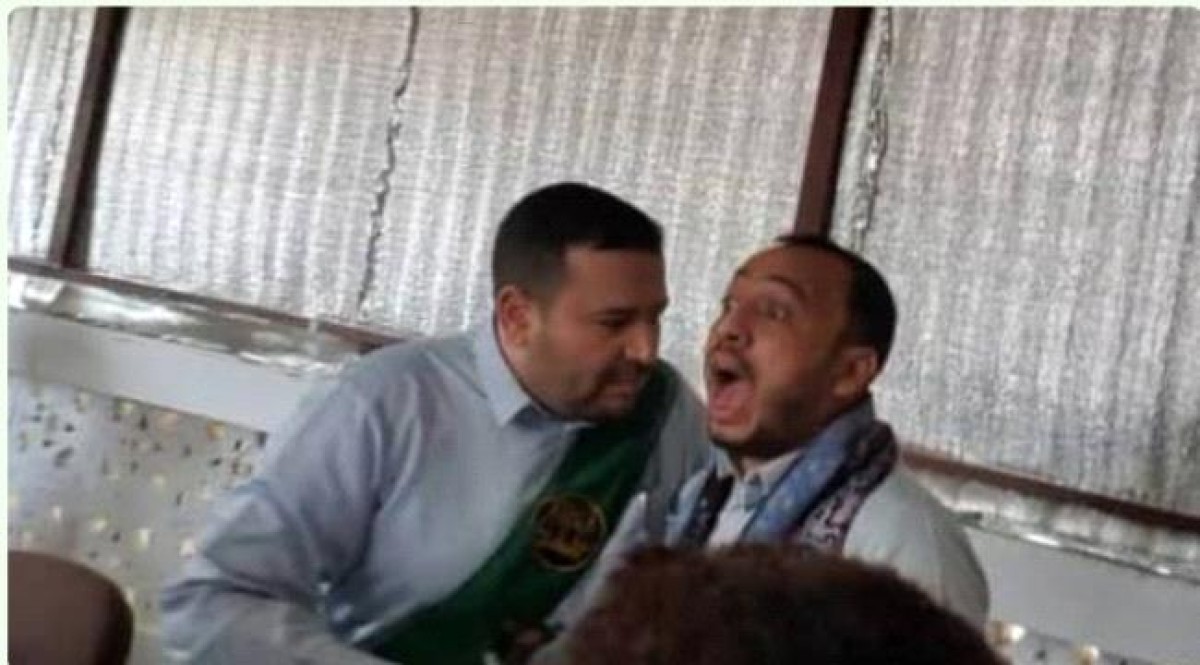A judge points a weapon at a lawyer inside a courtroom in Hodeidah


The Yemeni Bar Association in Hodeidah called for the judicial immunity of Bajil’s prosecutor, called Salah Al-Wadaei, to be lifted, and for him to be referred for investigation and dismissal, for pointing his weapon at one of the lawyers inside the courtroom and verbally insulting him, considering this as “systematic and multiple crimes against justice, a dangerous precedent in Judiciary.
The Syndicate Council said in a statement of condemnation and denunciation that it “stood in its extraordinary meeting on Wednesday, 3/6/2024 AD, against the violations and crimes committed by the Deputy Prosecutor of Bajil Primary School in Hodeidah, Salah Abdullah Al-Wadaei, which affected many fellow lawyers in violation of the provisions of the law, the most recent of which was the assault.” The unfair treatment of the lawyer/ Ali Ahmed Al-Hassani, during his appearance before the President of the Bajil Court, by drawing a weapon, raising it in his face, and attempting to kill him.”
The statement of the Syndicate Council added that: “Had it not been for the intervention of the president of the court and those present, an undesirable outcome would have happened at the hands of the aforementioned prosecutor, and he was not satisfied with that, but rather he uttered and directed a torrent of insults, cursing, and insults, and ordered his companions to detain his freedom and imprison him, all of that before the president of the court and during the presentation.” Al-Hassani filed a defense statement on behalf of his client before the President of the Bajil Court, Judge Amin Al-Omari, who did not prove what happened either in the minutes of the session or in a record of proof of the incident in accordance with the law.
The Lawyers Syndicate denounced in the strongest terms “what lawyer Ali Ahmed Al-Hassani and his fellow lawyers were subjected to in the arena of justice, who are supposed to protect rights and honor and apply the law.”
She said, “Such actions are multiple and systematic crimes, and are even a dangerous precedent in the judiciary against the profession and justice. They are an insult to the profession and its members and an insult to the judiciary, and they cannot be tolerated or passed over.”
The union called on the Supreme Judicial Council, the Office of the Public Prosecutor, and the Judicial Inspection Authority (affiliated with the Houthis) to “quickly lift the judicial immunity of the Bajil prosecutor and refer him for investigation into the crimes committed against the lawyer Al-Hassani.” It also demanded “the removal of the aforementioned prosecutor from his position,” stressing that “there is no His authority as a representative of society.”
The Hodeidah Bar Association also called on the Supreme Judicial Council (Houthi) to "stand seriously and firmly to stop the ongoing series of attacks on lawyers and respect their lofty and important message for the constitutionally stipulated judicial process."
It stressed that it "will not hesitate to do everything necessary to escalate this crime and other crimes that affect its members, and to take all measures to do so to preserve this sacred profession, to stand by them in any attack that destroys the legal profession, and to defeat them in accordance with the law." To the law.”
The Lawyers Syndicate stressed that “such crimes will not intimidate lawyers and will not deter them from continuing to carry out their duties in achieving justice and fairness, and their voice will remain loud, speaking and defending the oppressed in confronting the violations and attacks that affect public and private rights and freedoms and preserving the constitution and applicable laws.”< /p>
Last Wednesday, the prosecutor of Bajil, called Salah Al-Wadaei, raised his personal weapon in the face of lawyer Ali Al-Hassani, and this was met with widespread human rights condemnation. They said that the president of the court “did not fulfill his role as a judge, head of the session and the court, but rather contented himself with the argument.”